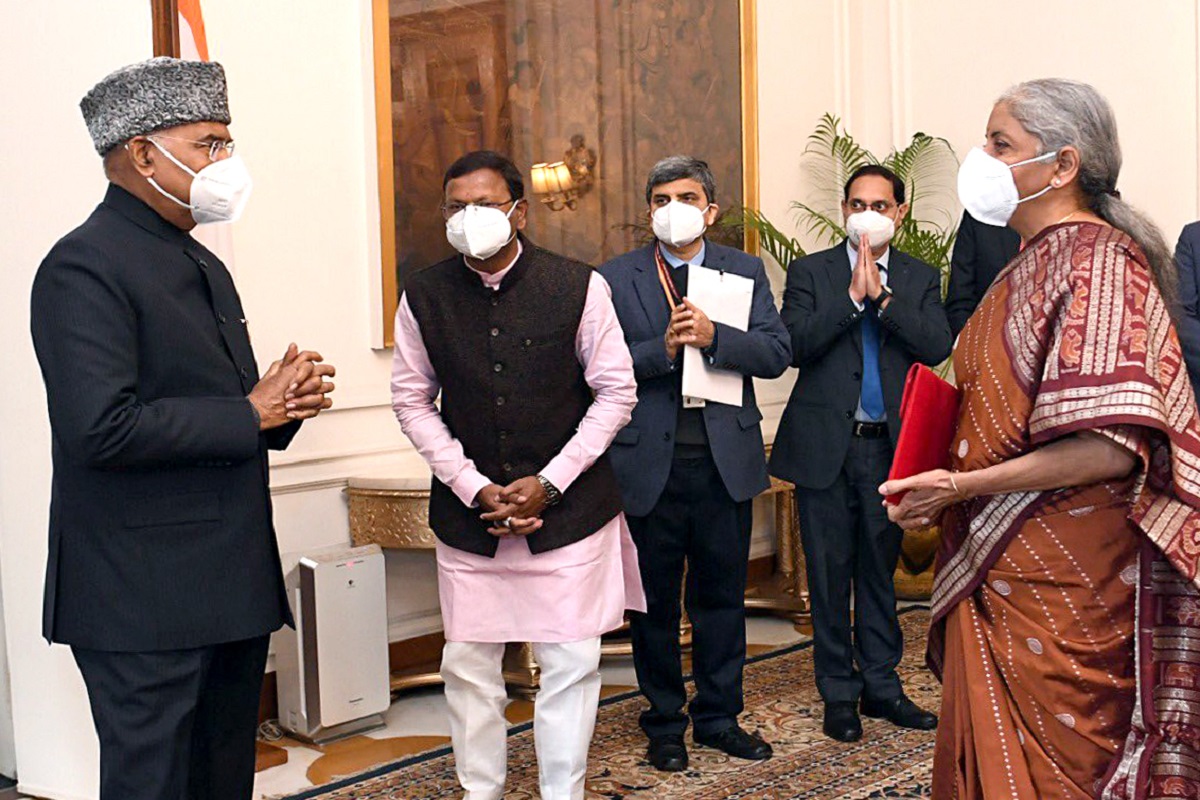The power of social media marketing: Igniting consumer engagement and brand awareness
Unlock the power of social media marketing to ignite consumer engagement and boost brand awareness. Discover the keys to success in today's digital landscape.
Giving a broad overview of Amrit Kaal, Sitharaman said this new phase would be guided by active involvement of the states, digitisation of manual processes and interventions, integration of the central and state-level systems through I-T bridges, a single point access for all citizen-centric services, and a standardisation and removal of overlapping compliances. Crowdsourcing of suggestions and ground level assessment of the impact with active involvement of citizens and businesses would be encouraged, she added.

Union Finance Minister Nirmala Sitharaman with Union Minister of State for Finance Pankaj Chaudhury and senior officials of the Ministry of Finance calls on President Ram Nath Kovind prior to presenting the Union Budget 2022-23 at the Parliament, at Rashtrapati Bhavan, in New Delhi on Tuesday. (ANI Photo)
While presenting the Union Budget 2022-23 in Parliament, Finance Minister Nirmala Sitharaman today announced that with the advent of Amrit Kaal, the next phase of Ease of Doing Business (EODB 2.0) and Ease of Living will be launched.
She stated that it was the “endeavour of the government to improve productive efficiency of capital and human resources,” and it would follow the idea of ‘trust-based governance’.
Giving a broad overview of Amrit Kaal, Sitharaman said this new phase would be guided by the active involvement of the states, digitisation of manual processes and interventions, integration of the central and state-level systems through I-T bridges, single-point access for all citizen-centric services, and a standardisation and removal of overlapping compliances. Crowdsourcing of suggestions and ground-level assessment of the impact with the active involvement of citizens and businesses would be encouraged, she added.
Advertisement
The Finance Minister stated that as a result of the government’s strong to ‘minimum government & maximum governance’, over 25,000 compliances were reduced and 1,486 Union laws were repealed in recent years. This, she added, was the outcome of the government’s trust in the public along with measures such as Ease of Doing Business (EODB).
She proposed to expand the scope of the single window portal, PARIVESH, to provide information to the applicants. Based on the location of units, information about specific approvals would be provided. It would enable application for all four approvals through a single form, and tracking of the process through Centralised Processing Centre-Green (CPC-Green). This portal, for all green clearances, was launched in 2018. It has been instrumental in reducing the time required for approvals significantly.
The Finance Minister said the states would be encouraged to adopt Unique Land Parcel Identification Number to facilitate IT-based management of land records as efficient use of land resources is a strong imperative. The facility for transliteration of land records across any of the Schedule VIII languages would also be rolled out.
As a further step to enhance transparency and to reduce delays in payments, the Finance Minister proposed a completely paperless, end-to-end online e-Bill System to be launched for use by all central ministries for their procurements. The system would enable the suppliers and contractors to submit online their digitally signed bills and claims and track their status from anywhere.
Government rules have recently been modernised for the needs of the Amrit Kaal. The new rules have benefitted from the inputs from various stakeholders. The modernised rules allow the use of transparent quality criteria besides cost in the evaluation of complex tenders. Provisions have been made for payment of 75 percent of running bills, mandatorily within 10 days and for encouraging settlement of disputes through conciliation.
Advertisement